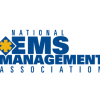This article originally appeared in the December newsletter of the National EMS Management Association and is republished here with permission.
Education is paramount in our industry. Clinicians are required to maintain skills that require continuing education in order to keep their licenses current. We at NEMSMA wanted feedback from the industry on this topic and in the responses we found a wide range of approaches in handling the caregiver continuing education process.
NEMSMA members were asked, “With the National Registry changing to the National Continued Competency Program (NCCP) process, how does your agency handle the 60 hours required of continuing education?”
Almost 48 percent of the respondents said that they provide and pay for the caregiver to obtain 60 hours of continuing education to maintain a National Registry Paramedic credential.
Many others, 19 percent, mentioned that it is the caregiver’s responsibility to maintain caregiver credentials. About one-tenth, 8.1 percent, of respondents said their agency provides and pays for the 30 hours of the national component and the caregiver is responsible to obtain the other 30 hours of continuing education on their own time. The ‘other’ option was selected by 28.2 percent of respondents to the NEMSMA member flash poll.
Some of the comments were:
“We provide Card Classes as well as 16 additional hours in training. Overall, it is the responsibility of the provider to maintain their certification.”
“Agency will pay for courses, but not compensate the individual for their time.”
“Each employee has an educational allowance amount that is determined by employment status.”
“Caregiver is personally responsible to maintain EMS certification. Agency will pay for some tuition and does offer content while members are on duty.”
“Currently not using National Registry. Using State of Illinois (IDPH) employees are given 12 hours on duty and obtain 18 hours off duty which is compensated yearly.”
“In 2017 agency will provide the training but not pay for the 60 hours as we have done in the past since it is a job description requirement/condition of work and revenues are significantly down!”













